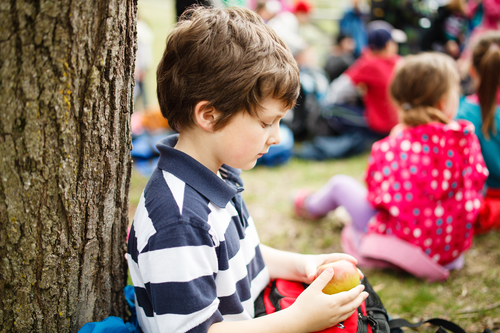by Veronica Vaiti, LCSW-R
As we’ve all been busy prepping our kids for going back to school, buying book  bags, notebooks and the like, we must not forget the most important preparation of all which doesn’t cost us a dime yet is priceless – teaching our children emotional awareness of and sensitivity towards their feelings and the feelings of others – or increasing their emotional IQ for short.
bags, notebooks and the like, we must not forget the most important preparation of all which doesn’t cost us a dime yet is priceless – teaching our children emotional awareness of and sensitivity towards their feelings and the feelings of others – or increasing their emotional IQ for short.
Educating our children about the range of feelings they can feel, teaching them how to name feelings they or others are having and the various healthy ways to cope with and relate to different feelings can never begin to early or too late and the opportunities to do so are boundless. Whether your child is 3 or 13 or 23, during a typical school day, there exists a multitude of social interactions and situations for our children to either be bolstered by or sadly knocked down from depending upon how they are managed.
Consider how you might help your child understand and relate to these situations: a usually quiet and shy classmate has an angry outburst in the lunchroom when they accidentally trip and fall and the lunchroom full of students breaks out in laughter; a fellow student who just experienced the death of a parent is starting to withdraw and distance themselves from the other kids who start whispering that this person is “acting weird”; a straight A student who breaks down in tears when they receive a B+ and runs out of the classroom in utter embarrassment when they realize how they are being watched by classmates.
The two most important elements in teaching emotional IQ are vocabulary and modeling.
1 – Building our and our children’s vocabulary for the range of feelings that exists is the first step on along the bridge to building understanding and compassion towards self and others. There is a difference between looking at someone as acting “weird” or seeing them as “sad and confused”. A great tool that can be used is the feeling wheel that can be found easily googling “feeling wheel”. Also using simple and direct descriptive language for feelings expressed or acted out expands our children’s knowledge of feelings as well as their sense of self-awareness.
2 – Children are sponges and the greatest imitators. Modeling various actions to take, behaviors and expressions to make in certain emotionally sensitive or charged times is a surefire way to teach our children healthy tools for how to cope with feelings. Simply telling a child to “talk nice” can get lost on them vs. showing a child how to take a deep breath to calm down and modeling how to say “thank you” for instance. Also, important in modeling is that it helps teach children the difference between feeling feelings and acting them out.
Teaching our kids how to relate to their and another’s emotional life stretches far beyond the school years and is an invaluable tool that can improve the quality of their life and last a lifetime. As parents, teachers, child-caregivers and grown-ups in a world full of children it is essential that we do our best to access appropriate tools and resources and build our skills that are essential if we wish to build our children’s emotional IQ.
Wishing everyone an enriching and prosperous 2015-2016 school year.



